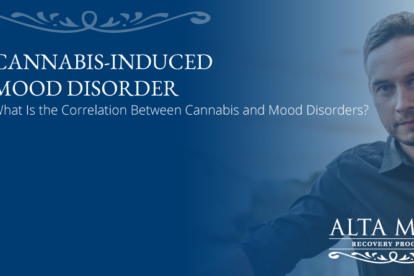Are Trauma and Substance Use Related? How Can Dual-Diagnosis Treatment Improve Recovery Outcomes?

It is true that trauma and substance use are closely connected. Substance abuse is one of many maladaptive coping mechanisms people turn to when the pain of their past trauma is too much to bear. But even with co-occurring trauma and substance use disorders, a person need not feel defeated; dual-diagnosis treatment works to heal these problems with carefully integrated methods and to empower the individual with positive coping skills for now and for later.
Violent crime. Child abuse. War trauma. Sexual assault. Traffic accidents. Natural disasters. Emotional abuse. These are just some of the traumatic experiences that can haunt a person long after the initial occurrence. Everyone who goes through intense experiences like these must somehow cope in the moment and in the aftermath.
Someone may be able to manage more productive coping strategies, such as accepting and feeling their full range of thoughts and emotions and talking to supportive family and friends about what they are going through and what they need to truly move forward. But, perhaps more often, people struggle to process their thoughts, feelings, memories, and fears around the traumatic experience. People may experience coping mechanisms such as shock, numbness, denial, resentment, aggression, anxiety, and fear in many forms.
For some people, this challenge to process their trauma leaves them stuck. And, in many ways, it is as if they are stuck in the trauma itself. People may relive the trauma through nightmares and flashbacks, and their everyday lives become unsafe because of common triggers around them that provoke their post-traumatic stress response. That stress response itself is a maladaptive coping mechanism. Another common coping action that doesn’t actually help someone to move beyond their trauma is substance use.
When someone turns to substances or any other unproductive means of dealing with their suffering, they still are doing their best in the moment. But, with the right help, there are other ways not only to transform the habits—such as substance abuse—that are perpetuating the trauma, but also to finally process that trauma. In fact, it’s possible for someone to become even stronger than they were before the trauma as they grow past it.
How Are Trauma and Substance Use Related?
There is an extensive range of reasons why someone might abuse drugs or alcohol: pain relief, the sedative or euphoric effects, escape, or self-destructive urges, among others. But, for some people, there is an even deeper need to cope with their emotional feelings and memories of trauma. In these cases, they may turn to drugs or alcohol in an attempt to self-medicate when they have no other options for psychological care.
Trauma and substance use disorders are volatile situations even when they occur individually. When co-occurring, these mental illnesses can mean greater risks in a person’s short- and long-term future.
These risks may include:
- Decreased capacity to recognize and manage triggers
- Increased likelihood of retraumatization
- Greater emotional instability
- Physical and cognitive damage related to stress and substance abuse
- Destructive patterns or lost relationships
- Compromised responsibilities
- Financial problems
- Development of other co-occurring disorders
Considering the significant dangers—not to mention the terrible distress—someone with trauma and substance abuse disorders needs urgent clinical attention and treatment. Many rehabilitation centers offer dual-diagnosis treatment for co-occurring disorders, improving the prognosis and the future for someone with addiction and PTSD or another trauma disorder. Compassionate treatment specialists understand the complications that lie under the surface, especially with trauma, and they are ready to help clients regain their strength, their confidence, and their positive perspective.
We're Here to Help. Call Today!
866-922-1350Why Must Trauma Disorders and Substance Use Disorders Be Treated Together?
Post-traumatic growth and addiction recovery are possible. Because these two problems are typically so closely knit, the chances for healing are even better when the treatment options are integrated for trauma and substance abuse. When one is dealt with and not the other, a person may eventually turn to other unhealthy coping mechanisms to try to deal with their stress.
It is difficult to argue that one of these disorders is more serious than the other. Both bring real dangers and immense distress. But the risks of active substance use disorders can be more immediate and dangerous. So, it is important to prioritize stabilization of a person’s addictive habits. But in a comprehensive treatment center, the full range of a person’s distress can be cared for very early in their healing journey. Thankfully, it doesn’t have to be the case of one or the other when it comes to clinical attention.
For both mental health concerns, but especially for trauma-related disorders, treatment happens over an extended period of time. This is because the trauma as it exists within the person’s psychology has become even more complicated over time and because it is necessary to approach this person’s vulnerabilities carefully, gradually. Addiction rehabilitation, too, takes time because, beyond just detoxification, the individual needs to create healthier patterns and coping skills for dealing with future stress and other challenges. Plus, as it is wrapped in with and informed by the person’s trauma, addiction is further complicated. Professional guidance, monitoring, and crisis management are imperative.
When someone commits to such immersive healing for themselves, they can discover empowered relief. Dual-diagnosis treatment forms the bridge between overwhelming suffering and a life full of the tools and support to pursue one’s real hopes and goals.
Alta Mira offers comprehensive treatment for people struggling with drug and alcohol addiction as well as co-occurring mental health disorders and process addictions. Contact us to learn more about our renowned Bay Area programs and how we can help you or your loved one start the journey toward lasting recovery.






